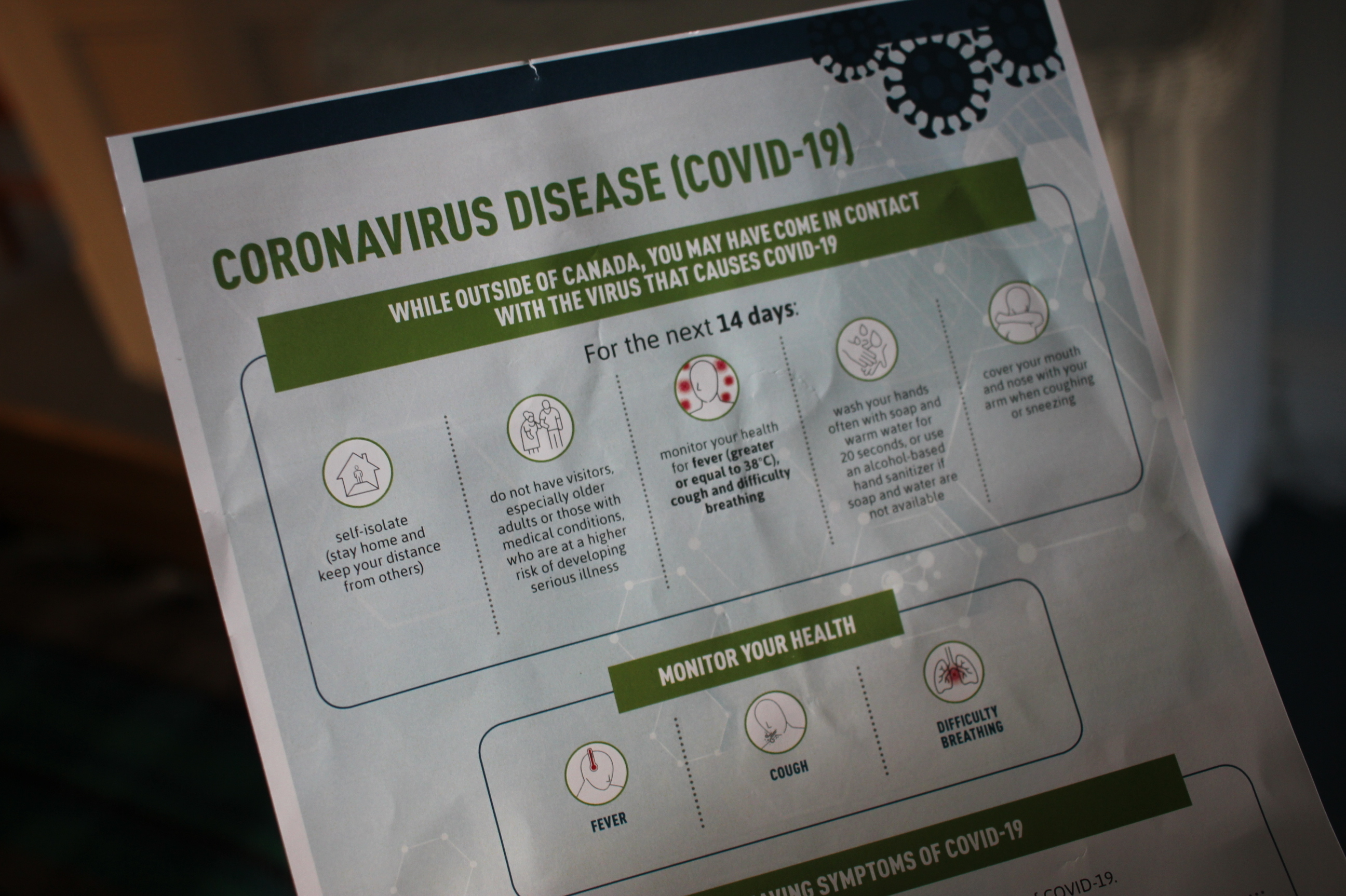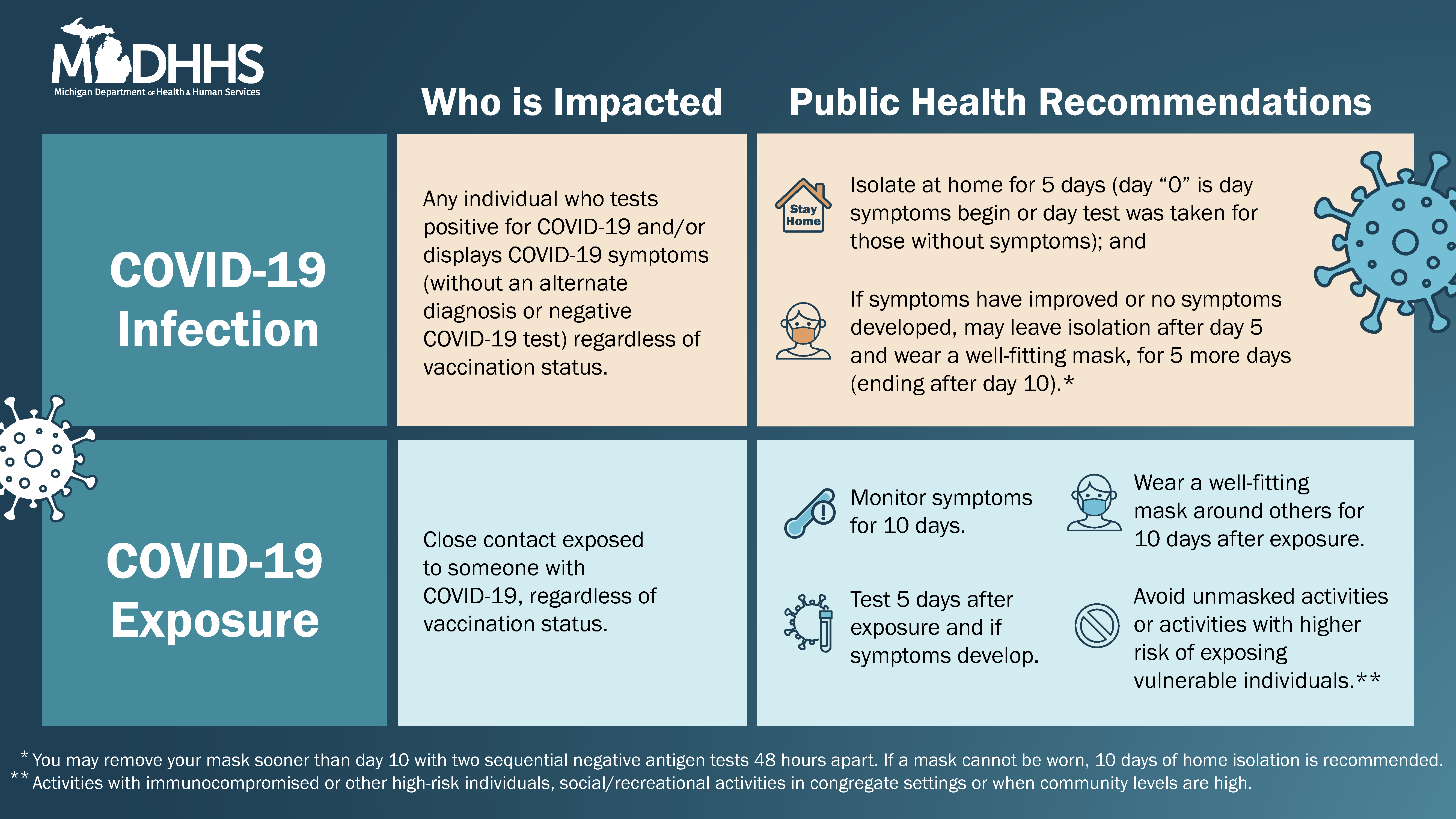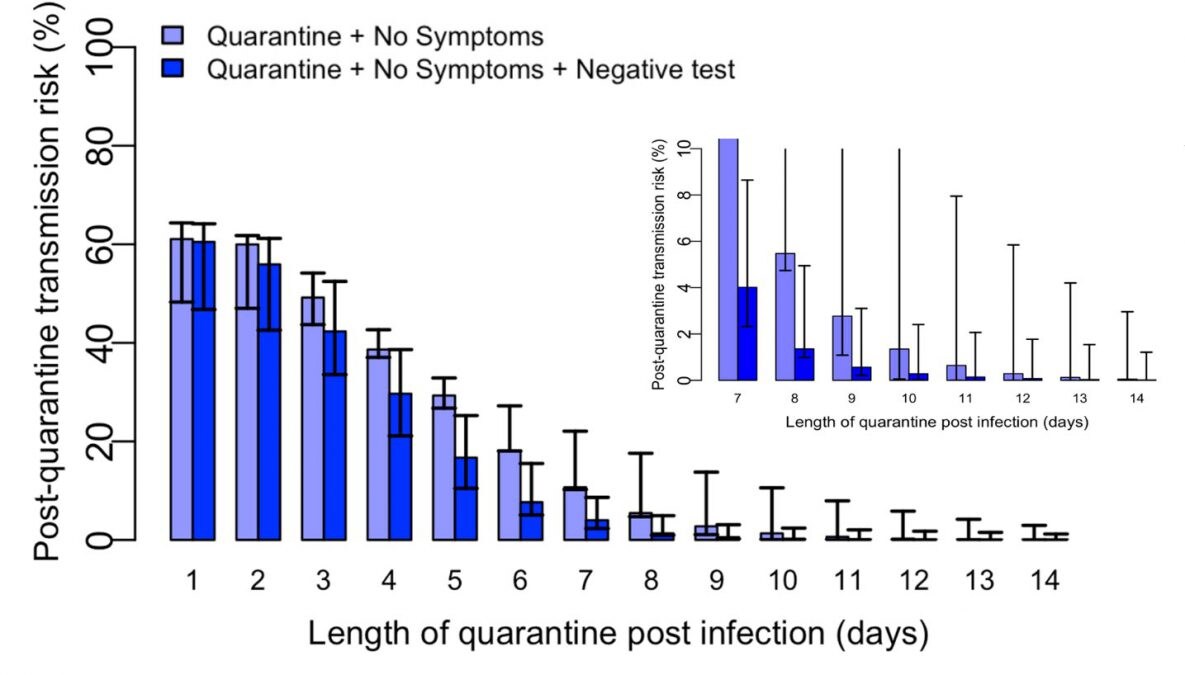Fully vaccinated residents do not need to quarantine if no close contact exposure or travel in the past 14 days. You have received negative results or.

The Logic Behind A 14 Day Quarantine After Travel Or Covid 19 Exposure Shots Health News Npr
Well the first thing to do is to make like a tree and quarantine yourself.

How long do you need to quarantine after having coronavirus. If you are required to isolate you will need to do so in your home in other accommodation or in hospital if you need care. Of having or confirmed to have COVID-19. Heres everything you need to know.
If you develop symptoms follow the guidance above for testing positive with symptoms. You usually have to self-isolate for 10 full days if youve tested positive for coronavirus COVID-19. Get tested with a viral test 3-5 days after travel AND stay home and self-quarantine for a full 7 days.
People who have tested positive for COVID-19 do not need to quarantine or get tested again for up to 3 months as long as they do not develop symptoms again. If you had symptoms of COVID-19 and you get a negative test result you should self-isolate until you have not had any symptoms for 48 hours. COVID-19 tests can detect either SARS-CoV-2 the virus that causes COVID-19 or antibodies that your body makes after getting COVID-19 or after getting vaccinated.
Increased likelihood exists for persons who. People with an increased likelihood of infection with the new coronavirus must go into quarantine for ten days subject to certain requirements it is possible to shorten this period. Anyone who has had close contact with someone with COVID-19 should quarantine for 14 days after their last exposure to that person except if they meet the following conditions.
Facilities may elect to quarantine newly admitted residents and residents returning after hospital or ED visit discharge. Whats more quarantine can end after seven days if the person tests negative for COVID-19 and has no symptoms. When you do not need to self-isolate.
Even if you get tested for COVID-19 have no symptoms and have a negative test you should remain in quarantine for the entire 14 days. Its also important to. At least 10 days have passed from the date of your positive test as long as you remain free of symptoms.
See page 5 for quarantine after COVID-19 infection or vaccination. Do this without delay. If you are quarantined you will need to stay home for at least 14 days after you saw the person who was sick with COVID stay apart from other people and watch for symptoms such as a fever or.
Health officials now say a 10-day quarantine period is sufficient if the person in quarantine experiences no symptoms of COVID-19 during that time. Quarantine for coronavirus COVID-19 Quarantine is when you are well but may have been in contact with someone with COVID-19. In new guidance the CDC said people exposed to COVID-19 who are asymptomatic can quarantine for 10 days instead of 14 and for 7 days if they receive a negative test result.
You might need to self-isolate for longer if you get symptoms while self-isolating or your symptoms do not go away. In such cases you must stay in quarantine for 14 days to prevent the spread of the virus. Read more about what quarantine is who must go into quarantine and what to do if you live with someone in quarantine.
After having recovered from coronavirus infection it is important to follow a healthy lifestyle and also take note of any alarming signals. If youve been in close contact with someone who has COVID-19 you may have to self-isolate for 10 full days. Even if you test negative stay home and self-quarantine for the full 7.
However as of July 2021 the CDC recommends that you be tested thre to five days after exposure and wear a mask in public indoor settings for 14 days or until you receive a negative test result. How Long Do I Need to Stay in COVID-19 Isolation or. If you live with or have been in contact with someone with COVID-19 you will not need to self-isolate if any of the following apply.
Isolation separates people with COVID-19 or suspected of having COVID-19 from people who do not have the virus. Unvaccinated employees and students can leave quarantine after 10 days including returning to work and to in-person class following your most recent exposure provided you do not develop symptoms of COVID-19. If you are fully vaccinated and have been around someone with or suspected of having COVID-19 you do not need to quarantine.
COVID-19 symptoms can appear anywhere from 2 to 14 days after exposure. If you are not fully vaccinated and have been exposed to someone with COVID-19 you should quarantine yourself immediately for 10 days. If you are caring for someone with COVID-19 or if the sick person cannot be separated from others at home you should stay home while the sick person is home at least 10 days plus 14 more days.
But the Centers for Disease Control and Prevention suggest that someone with symptoms should go into quarantine. Stay in your home or co-living setting. If you are a confirmed COVID-19 case anyone who is a close contact will need to quarantine.
Youre under 18 years and 6 months old. The CDC now says the virus is no longer contagious 10 days after symptom onset down from a previous 14 days. Types of COVID-19 Tests.
Youre fully vaccinated this means 14 days have passed since your final dose of a COVID-19 vaccine given by the NHS. Long the surface needs to stay wet. According to the CDC quarantine is when you separate yourself from other people because you were in close contact with someone with COVIDeven if you do not feel sick.
If youve been tested for COVID-19 and are waiting for your results you must quarantine until. If you are not sick but were instructed to quarantine follow these guidelines for ending quarantine. Someone who has been fully vaccinated and shows no symptoms of COVID-19 does not need to quarantine.
If you are in long-term residential care or you recently left hospital after treatment for COVID-19 you should wait for 14 days since you first had symptoms and for 5 days without fever. You can end quarantine 14 days after your last close contact with a person who has COVID-19. Stay home and away from the sick person for 14 days.
When in quarantine you must. However fully vaccinated close contacts should. Have been in close contact with a person who has tested positive for the new coronavirus.
This type of test is called a viral test because it looks for viral infection. Your local public health authority tells you that you no longer need to quarantine. Post COVID-19 care.
If you are NOT S IC K but LIVE W ITH S O ME O NE who has COVID-19. Since you can begin having symptoms. Tests for SARS-CoV-2 tell you if you have an infection at the time of the test.
People who develop symptoms again within 3 months of their first bout of COVID-19 may need to be tested again if there is no other cause identified for their symptoms. If you are a Covid Pass participant who comes to campus regularly and you have not yet been vaccinated against COVID-19 you will need to self-quarantine for at least 10 days. If you have been vaccinated quarantine is not required.

Science Brief Options To Reduce Quarantine For Contacts Of Persons With Sars Cov 2 Infection Using Symptom Monitoring And Diagnostic Testing Cdc

Covid 19 Advice Mental Health Who Western Pacific
